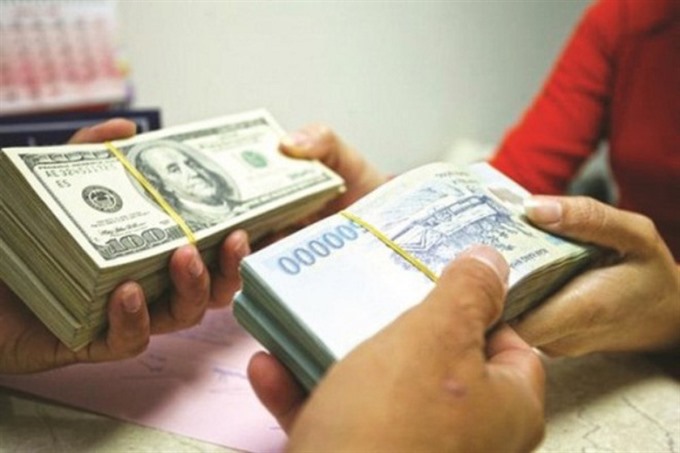The Vietnamese economy is walking a careful tightrope amid rapid developments around the world, especially the spiraling US-China trade war and the US Federal Reserve’s rate hikes, which are weighing on exchange rates and Viet Nam’s trade balance.

The Vietnamese economy is walking a careful tightrope amid rapid developments around the world, especially the spiraling US-China trade war and the US Federal Reserve’s rate hikes, which are weighing on exchange rates and Viet Nam’s trade balance.
Reuters reported that China’s yuan was flat at 6.9673 per dollar on Wednesday after tumbling to a decade low on Tuesday. The yuan was driven down by worries about a slowdown of the world’s second-largest economy and a potential escalation in the US-China trade war. The Chinese currency was on track for a loss of 1.4 per cent in October, its seventh straight monthly loss - the longest such losing streak on record.
Statistics showed that China’s yuan lost 6 per cent against the US dollar from the beginning of this year and 9 per cent within the past six months.
A UBS analyst forecast that the Chinese currency could weaken further to hit 7.3 yuan per dollar by the end of 2019.
Data of the State Bank of Viet Nam showed that at the beginning of the year, the VND/CNY cross rate was quoted at 3.444,86 and is now at 3.280,76, meaning that the Vietnamese dong appreciated by nearly 5 per cent against China’s yuan.
According to Ngo Dang Khoa from HSBC Viet Nam, the Fed’s tightened monetary policies together with weaker Chinese yuan would be major challenges for the Vietnamese dong in the short term. In addition, the strong depreciation of the yuan against the Vietnamese dong was also worsening Viet Nam’s trade deficit with China.
Nguyen Duc Thanh, Director of the Viet Nam Institute for Economic and Policy Research, said that with the Chinese yuan’s strong depreciation and the Vietnamese dong tightly pegged to the US dollar, Vietnamese goods would be less competitive and Viet Nam’s trade balance might be strongly affected.
The latest updates from the General Statistics Office showed that Viet Nam ran a trade surplus of US$6.4 billion in January-October in general but a trade deficit of $20.8 billion with China.
Thanh said that the Fed’s interest rate hike also puts pressure on interest rates of the domestic currency to stabilise the exchange rate and prevent inflation.
At a conference about the Vietnamese economy, Thanh suggested that Viet Nam should consider a moderate-level depreciation of the Vietnamese dong against the dollar to adapt to the US-China trade war, adding that the use of foreign currency reserve to stabilise exchange rates is only a short-term solution and might bring risks, given the thin reserves of Viet Nam, Thanh said.
Despite great pressure on exchange rates in the context of the escalating US-China trade war and the Fed’s rate hikes, Viet Nam has made macro-economic stability its first priority.
The Deputy Prime Minister said at the National Assembly’s hearing on Saturday that the Vietnamese Government consistently considers macro-economic stability as its top priority, stressing that there had never been a policy to devalue Vietnamese dong to support exports. — VNS





